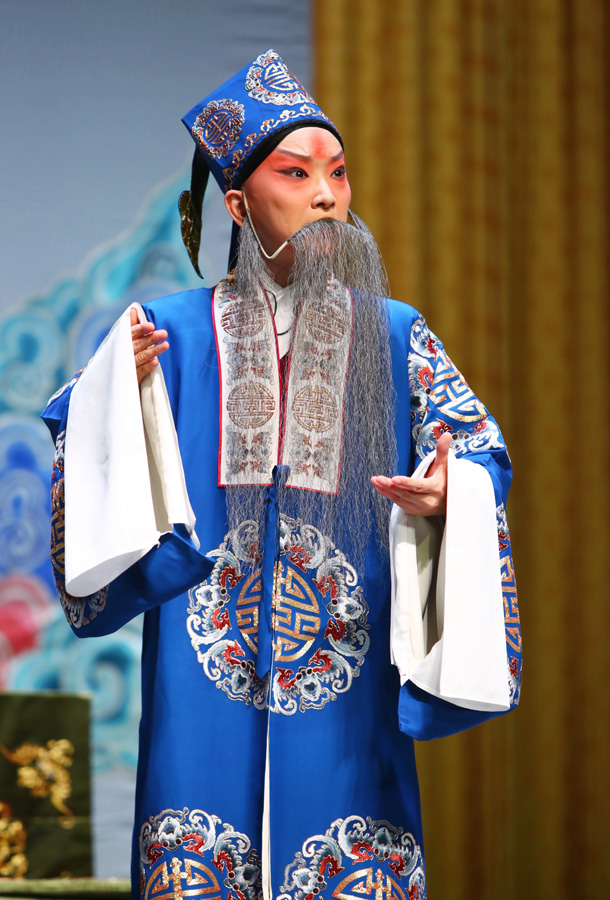Modern take on an ancient art


Among the most famous laosheng performers is the late Meng Xiaodong (1907-1977), who was renowned for her clear voice and mastery in portraying masculinity on the stage. Meng was one of the few disciples of Peking Opera master Yu Shuyan (1890-1943), who placed a great deal of emphasis on emotional expressions with his distinctive scholarly grace.
Meng also played an important role in introducing Yu and his achievements to the public, notes Wang, who used to train with a disciple of Meng's, and identifies herself as a fourth-generation inheritor of the Yu Shuyan school of Peking Opera.
As a child, Wang Peiyu used to sing at Sunday afternoon open-mic Peking Opera sessions at Shanghai Culture Square, and this was where Wang Siji, a teacher with the Shanghai Theater School, spotted her talents.
"Mr Wang made a promise to the school to tutor me personally and ensure there would be no gaps in my professional training," she recalls. "Eventually, I became the last person on the list of 54 students who enrolled in the Peking Opera class at the Shanghai Theater School in 1992."
Decades of training and performances as elderly men, usually dignified officials or legendary heroes, has given Wang Peiyu a unique masculine flair in her personal style. She wears her hair extremely short and her manner of dress can best be described as "androgynous".
"She is incredibly charming with or without Peking Opera makeup," said Shanghai-based music critic Tian Yimiao at the launch of Wang Peiyu's new book.
"Wang Peiyu is one of the first popular idols among the Peking Opera artists in contemporary China, and her influence goes far beyond the theater circles. Opera stars today can make an unimaginable impact compared to previous eras, and she has inspired a large number of young fans to develop an interest in Peking Opera. She opened the gate for them to the world of traditional Chinese art and culture."
























